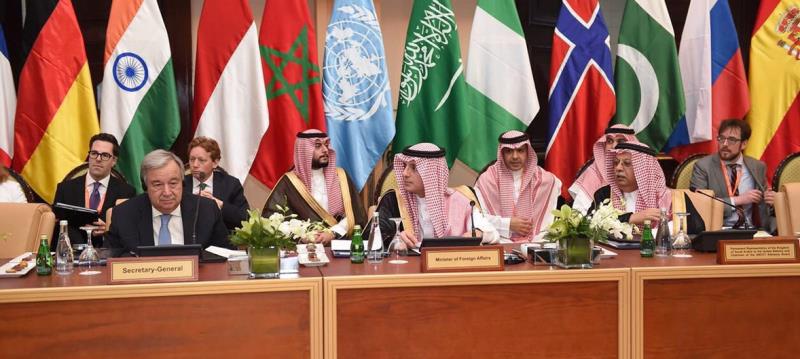
(Photo: UN)
New York (People’s Daily) – The United Nations and the Arab League on Tuesday signed an agreement to work together to tackle terrorism during a ceremony in the Saudi capital of Riyadh following an advisory board meeting of the UN Counter-Terrorism Centre (UNCCT).
Established in 2011, the UNCCT is the capacity-building part of the UN Office of Counter Terrorism (UNOCT), which is ran by Vladimir Voronkov, who is both the UNCCT’s executive director and UN under-secretary-general for counter-terrorism.
Since April 2012, the UNCCT has implemented more than 60 anti-terrorism projects for global, regional and national levels. It focuses its activities on countries and regions where the threat of terrorism is severe, such as Africa, the Middle East, and Central and South Asia.
“We have much to learn from each other,” Voronkov said after the signing of the agreement between his office and the General Secretariat of the Arab Interior Ministers Council.
“In the memorandum, we declare our wish to coordinate our activities with a view to achieving our shared counter-terrorism goals,” Voronkov said. “We commit each other to enhance consultations, coordination and the sharing of information and skills.”
According to UN news reports, the two organizations will develop joint activities, such as seminars, workshops, trainings, projects and other initiatives, to increase the number of members of the Arab League in the fields of counter-terrorism and prevention of violent extremism.
UN Secretary-General António Guterres said he is also looking to forge new partnerships during a high-level conference for leaders of counter-terrorism agencies in June at the UN’s New York Headquarters.
Guterres stressed the importance of preventing terrorism by addressing its root causes, as well as the need to sustain the UN’s funding to help countries develop their own counter-terrorism capacities.
“No one is born a terrorist, and nothing justifies terrorism, but we know that factors such as prolonged unresolved conflicts, lack of the rule of law and socioeconomic marginalization can all play a role in transforming grievances into destructive action,” Guterres said.


